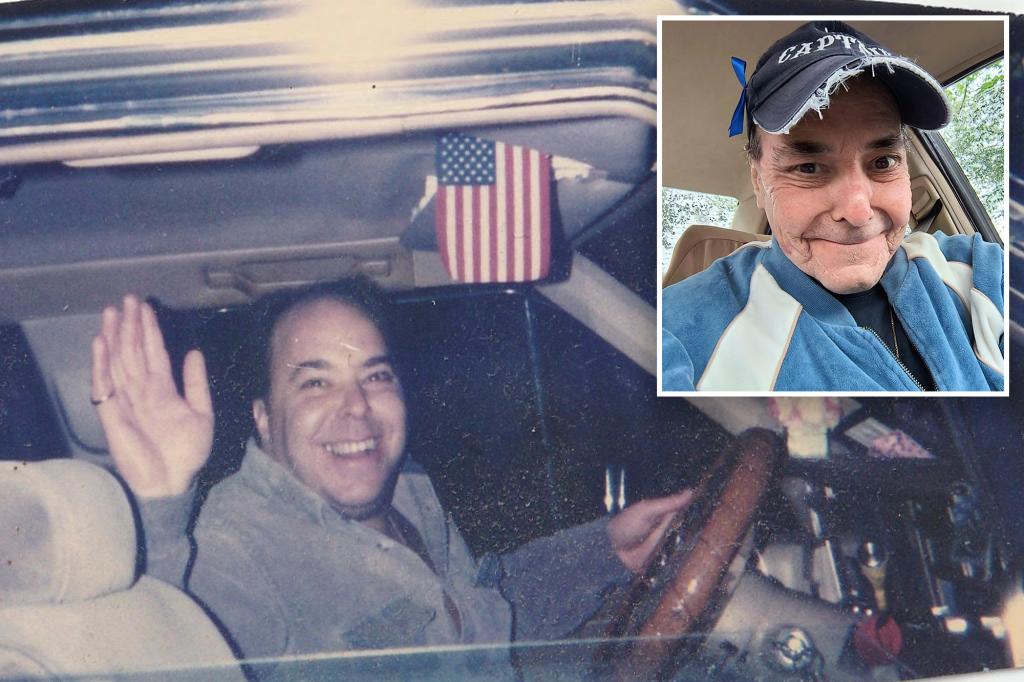Jeffrey Wolkin was driving a cab when two planes hit the World Trade Center on 9/11 — and he soon became one of the days’ many little-known heroes.
The livery driver quickly started ferrying downtown workers out of harm’s way in lower Manhattan — and is now one of many brave hacks suffering from cancer connected to their part of the Sept. 11 response.
“Whichever way the wind was blowing, you smelled death – and you couldn’t forget it,” Wolkin, now 65, recalled from his home in Whitestone. “I smelled it every single day.”
The married father, who was 41 at the time, took fares in and out of Manhattan three times on that black Tuesday. He then spent some 223 hours shuttling clients below Houston street over the next 10 months.
Wolking is part of an un-sung segment of New Yorkers who did their part on that dark day and who now suffer the affects of the toxic air left behind by the collapsing buildings — cabbies who helped keep New York moving on 9/11 and in the difficult days after.
But unlike others who were downtown after the attack many cab drivers are not getting the help they need, experts said.
“People like cab drivers are completely underrepresented in the [9/11 illness victims] program” since they may not have a professional support system or they’re not in a union, according to Patrick Rheaume of 9/11 law firm, Barasch & McGarry, which represents more than 35 cabbies affected by 9/11.
”It’s so hard with a cab driver because you’re working alone and the burden of proof is so high” to qualify for the programs.
Wolkin has been recently diagnosed with stage 4 esophageal cancer, which has spread to his liver. He faces a 3% chance of survival. Its the second time he’s battled cancer.
“My dad was one of only a handful of cab drivers working in Manhattan that day and he’s had two stage 4 cancers now,” his son, Joseph Wolkin, exclusively told The Post, just days before the 24th anniversary of the terror attacks that claimed nearly 3,000 lives that day and more than 8.000 from 9/11-related illnesses.
His doctor discovered a tumor “the size of a golf ball” and ordered him to the ER, where he had an emergency tracheotomy that removed a chunk of the tumor without cutting off his tongue.
“My dad went from a healthy, active man to bedridden in a hospital with tubes coming out in front of my eyes,” said Joseph, 30. “It was a complete shock – he couldn’t speak for weeks. He had to text everything to me and had to learn how to speak again.”
But Wolkin, who held a TLC license, doesn’t look back on his time in close proximity to the toxic downtown dust with bitterness.
“Nobody knew how dangerous it was back then – not the first responders, firemen or EMTs. Nobody knew,” he said weakly, noting his once vital voice has weakened.
“Everyone says I sound like a woman,” he added resignedly.
But it’s his 70-pound sudden weight loss, dropping to an alarming 100 pounds, that scares the five-foot-six Wolkin the most.
“What hurts the most? My tushy. I’m skin and bones – and I’m not going to lie: it hurts when I sit,” Wolkin said of the dramatic changes to his body stemming from the chemo for esophageal cancer discovered last year.
“All the firemen, cops, first responders – nobody got cancer immediately,” said Wolkin, who through his lawyer, Jason Weisfuse, has qualified for the September 11 Victims Compensation Fund and the WTC Health Program. The longtime driver winces for fellow cabbies who haven’t applied for help.
While there’s no definitive data tracking TLC-licensed drivers affected by 9/11, it’s clear many drivers aren’t getting the help they need.
“Taxi, livery, and commuter van drivers played an often overlooked yet critical role in the wake of both the September 11 attacks and the Flight 587 crash. More than 1,000 eagerly volunteered to give free rides to the families of victims, as well as first responders working at Ground Zero, and we’re forever proud of their service,” TLC Press Secretary Jason Kersten said in a statement to The Post. “We refer any driver who believes their health may have been affected to the September 11th Victim Compensation Fund and the WTC Health Program.”
As for Wolkin, “he’s been through the worst someone can go through in terms of cancer,” said his devoted son, adding that the avid fisherman hasn’t been able to enjoy his hobby in more than a year.
“I’m weak,” Wolkin said in between coughs and catching his breath. “But I’m not ready to die,” he added defiantly. “My friends send me fishing paraphernalia to keep my spirits up.
“They say, ‘Don’t give up.’ I pray I join them soon.”
Read the full article here


